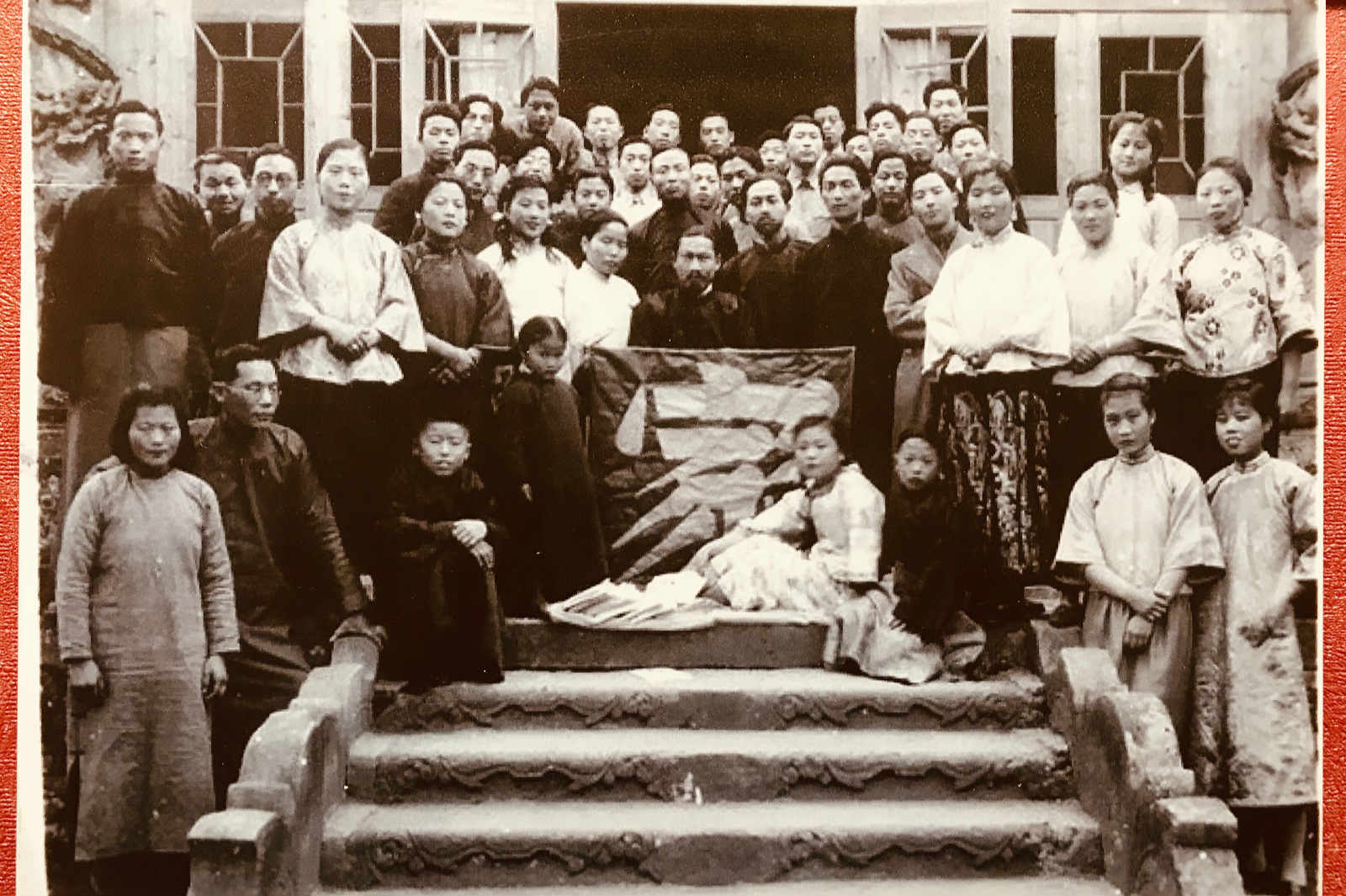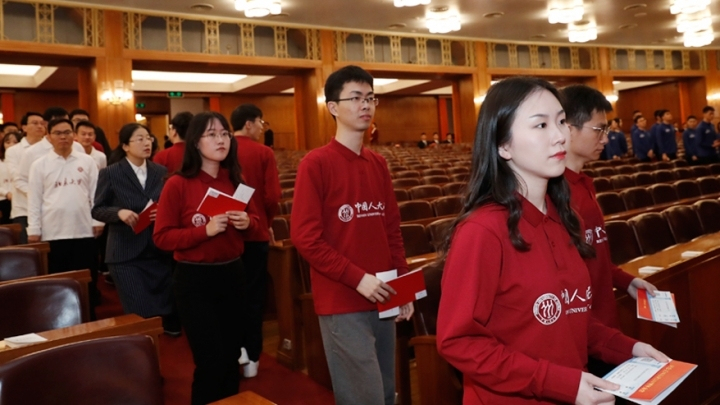
Opinion
21:32, 04-May-2019
May Fourth Movement: One giant leap for Chinese women
Han Hua

Editor's note: Han Hua is a fellow at Chongyang Institute under the Renmin University of China. The article reflects the author's opinion, and not necessarily the views of CGTN.
It is indeed thought-provoking for me standing in front of a picture showing some female students taking a group photo after a theatrical performance in the 1930s, as showcased in the Xiamen University history exhibition. The university, like many peer universities in China, is celebrating the 100th anniversary of the May Fourth Movement solemnly.

The theater group of Xiamen University and the female association after their co-performance in the 1930s. /Courtesy of the author
The theater group of Xiamen University and the female association after their co-performance in the 1930s. /Courtesy of the author
I happen to be here on the anniversary day of the occasion, recalling how amazingly women had benefited from the movement just a decade later, including schooling, public performances, and group photos showing them side by side their male fellows. I can't help but thinking the May Fourth Movement was not just about youth awakening, but it also opened a brand new chapter of Chinese women liberation and gender equality.
Why? In his inspiring and famous letter in the New Youth, a must-read magazine at that time, Chen Duxiu, one of the founders of the Communist Party of China and an important leader of the May Fourth Movement, inspired a whole new generation, women and men alike. He wrote that the essence of the movement is about acting on one's own instead of acting as slaves, being progressive instead of being conservative, being active instead of passive, being open-minded instead of closed-minded, being practical and, last but not least, being scientific instead of being imaginary.
The above lantern of thoughts inspired the lives of every generation of youth since. In particular, Chinese women were, and are following its spirits and making significant progress since, to the extent that the remarks made by Neil Armstrong – one small step for a man, one giant leap for mankind – popped into my mind immediately as an interesting comparison.
Since in the Chinese women's case, the May Fourth Movement is, to some extent, one small step and a brand new start for China's youth, and most of all, one giant leap for Chinese women in their ever-continuing pursuit of independence, personal enrichment, and gender equality.

Students are attending the ceremony marking the centenary of the May Fourth Movement at the Great Hall of the People in Beijing on Tuesday, April 30, 2019. /Xinhua Photo
Students are attending the ceremony marking the centenary of the May Fourth Movement at the Great Hall of the People in Beijing on Tuesday, April 30, 2019. /Xinhua Photo
Before May 4th, 1919, it was almost impossible for average Chinese women to get a modern school education, not to mention alongside their male fellows. A women's marriage was prearranged by her parents way before she had the consciousness to refuse. Women were treated like “attached goods” whether the family was rich or poor, and women's rights and prosperity are only dependent on father or husband's arrangement and their fortune.
Hence the May Fourth Movement was first and foremost a liberation for Chinese women. Further, given its nature in advancing the social development as well as personal enrichment, Chinese women were not just relying on a one-off movement but succeeded in transforming the momentum into a 100-years-long march which is still progressing.
Why do we say that it is still progressing? First, one of the biggest achievements of May 4th is gender equality, and the characteristics of the new era will give this advancement new energy to move on. The modern service industry will allow and even encourage more women to tap into career development, the technological advancement is enabling and will continue to enable the tech-based industry to flourish which gives women competitive advantages to stand out. Also, women will have more opportunities to explore a variety of personal interests.
I felt transcendent at some point, looking at the picture, and even compelled to tell those women students that their advancement is inspiring to me, even after 100 years.
(If you want to contribute and have specific expertise, please contact us at opinions@cgtn.com)

SITEMAP
Copyright © 2018 CGTN. Beijing ICP prepared NO.16065310-3
Copyright © 2018 CGTN. Beijing ICP prepared NO.16065310-3